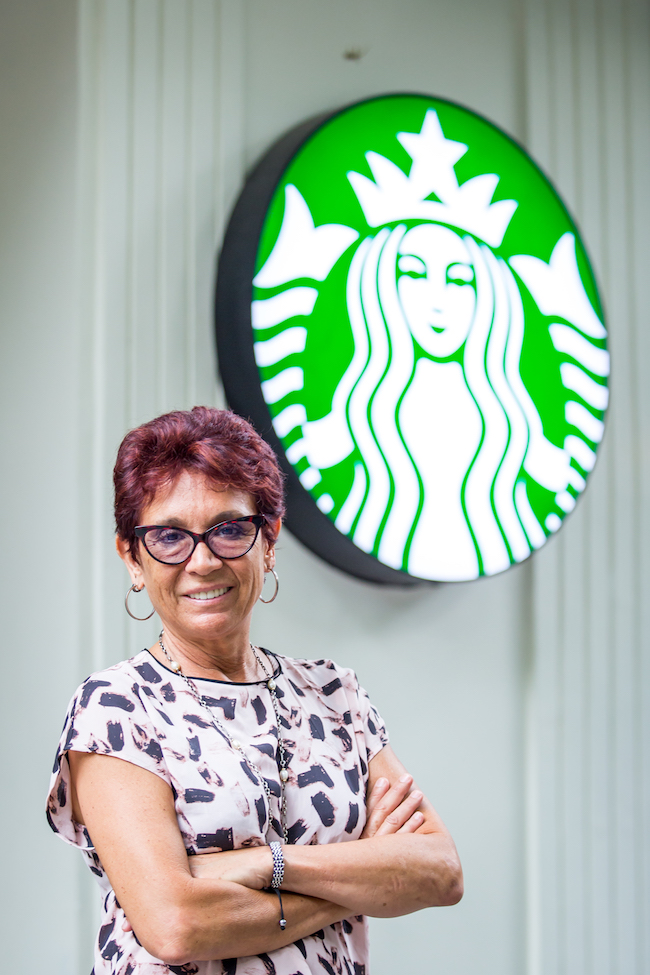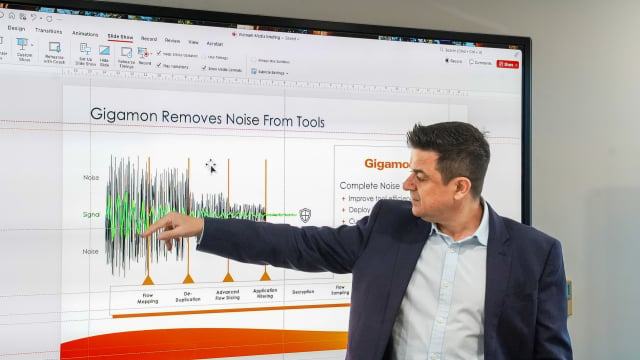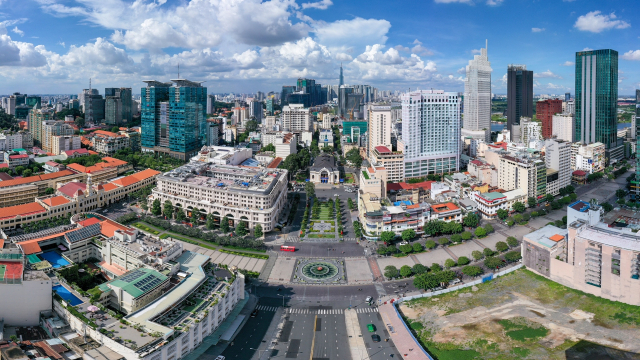Leader Talk
We come to Vietnam to make money, not to save money: Starbucks Vietnam's CEO
The world-leading coffee brand does not need to change to blend in with the Vietnamese culture because customers want the same Starbucks taste at any place of the world, according to General Manager of Starbucks Vietnam Patricia Marques.

Graduating in marketing from FPT in 2017, Hanoian Nguyen Hoang Duc (Jack), decided to become a barista at Starbucks Reserve in Nha Tho street (Hanoi) after having worked part-time for this company during his student years.
Despite becoming a full-time barista for Starbucks just for a short period of time, Jack is currently one of the brand’s best baristas in Asia. In May 2018, Jack won the Starbucks Vietnam Barista Championship 2018, which enabled him to attend the Starbucks China and Asia Pacific Regional Barista Championship last October.
These days, Jack has been eagerly preparing for a long trip to Starbucks headquarter in the US and countries having Starbucks stores. This trip, fully funded by Starbucks Vietnam, is expected to enrich his knowledge, experience, and opportunities learning from other excellent Starbucks' baristas around the world.
Sharing with TheLEADER, General Manager of Starbucks Vietnam Patricia Marques stated that many years ago, she also started her career as a Starbucks barista in California.
Over the time, thanks to the favorable working environment with a plenty of opportunities, not only Patricia but also many senior Starbucks staff in other markets around the world were trained and are able to achieve their positions today.
"For that reason, I want our company to continue as a wonderful combination of a favorable working environment and capable people. Successful people in Starbucks have kept telling their stories, and that is how the Starbucks culture has been spreading," emphasised Patricia.
Having entered Vietnam’s market since February 2013 with the first store located in Ho Chi Minh city, so far, Starbucks has established 39 stores in major markets including Hanoi, Ho Chi Minh City, Haiphong, and in the near future, the total number of Starbuck stores in Vietnam will increase to 45.
Afterward, Starbucks will focus on the major markets of Danang and Haiphong. Patricia said Starbucks' future strategy was to invest in stores located far from the city center.
"We have to grow along with the development of the city. Last year, Hanoi kept expanding and people were getting tired of living in the city center. They are looking for a clean and green space for their families," Patricia indicated.
"We did not compete to open more stores"

Despite having long been labeled as a high-priced coffee brand, Patricia affirmed that the prices offered by Starbucks were not high compared with some other brands.
The number of Starbucks customers still continues to rise through the years, which is understandable due to the increasing income of the Vietnamese people and the swelling size of the middle class in Vietnam.
Just more than two weeks ago, Starbucks Vietnam introduced to customers across the market Starbucks cards which are used for its cashless payment system.
While many world-famous coffee brands came to Vietnam and left after a short time, Starbucks decided to stay and grow despite the severe competition against domestic and foreign coffee brands such as Highlands Coffee, Trung Nguyen, Phuc Long, or Urban Café.
"We did not compete to open more stores; we would rather focus on long-term strategic investment for 20 to 30 years instead of for only a temporary period of 12 months,” Patricia revealed.
Besides, on comparing the rent in Vietnam and other countries, Patricia stated that the rent of their Vietnam’s stores was anything but cheap.
"We do not find cheap locations; we prefer the right ones. In Vietnam, we do business to make money, not to save money," emphasised Patricia.
Currently, many people still question whether Starbucks should change to adapt to the taste of the Vietnamese. After five years of working in Vietnam, Patricia stated that for Starbucks in particular and some foreign companies in Vietnam in general, changing was not necessary.
"The Vietnamese do not want us to change the recipes. They want to enjoy a cup of Starbucks drink that tastes the same as in any Starbucks stores in the world," revealed the Starbucks Vietnam's leader.
Hence, there would be no difference in the drinks of different markets. If any, the differences should be the locations or the store size. In Japan, for instance, Starbucks stores are much smaller due to the limited available real estate.
In Hong Kong, Starbucks stores are often located on the upper floors of the buildings as Hong Kong people often shop vertically. Besides, the served dishes are also different. Starbucks always tries to customise its menus to cater to a variety of tastes.
Talking about the challenges of doing business in Vietnam in the past years, Starbucks Vietnam's General Manager said that there are many challenges but not because of doing business in Vietnam. For example, the supply chain this year has fluctuated stronger than it was 10 years ago, so managing it well is a difficult question.
"Even rich markets such as Singapore and Hong Kong are facing a lot of difficulties. In Starbucks, each function will face different difficulties, but thanks to those, Starbucks can grow stronger. I am very fortunate to have a team of supporters who help me find solutions instead of dealing with them alone," said Patricia.
Starbucks Vietnam introduces member card and mobile payment system
Vietnam turns semiconductor vision into action
The global semiconductor industry is being reshaped by geopolitical tensions, shifting supply chains, and the surge of digital technologies.
Cutting red tape in APA approvals to speed up tax negotiations
The change in APA approval authority is expected to shorten processing time and enhance business proactiveness in international tax negotiations.
Enterprise cybersecurity is under threat from the inside
As hybrid cloud systems grow more complex, Vietnamese enterprises are struggling to detect cybersecurity threats moving laterally within their own networks.
Breakthrough for the international financial center ambition
The submission of the draft resolution on Vietnam’s international financial center to the National Assembly heralds a new developmental era for the country.
How leadership philosophy redefines hospitality in Nha Trang
More than just running a 5-star resort, Kristian Petersen is redefining the art of hospitality with a humane and sustainable leadership philosophy.
When organic becomes an inspiring wellbeing lifestyle
For Tyna Huynh, co-founder of Drinkizz, organic is not just a food choice but a way of life that fosters a deep connection between people, nature and community.










































